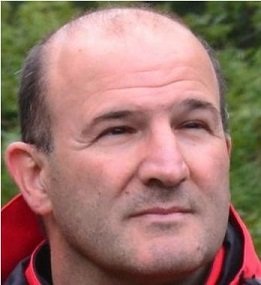
Technical Head of the Centre for Environmental Modelling and Computation
University of Leeds
Much of Mark’s work has links to fluid dynamics and high-performance computing, from his first encounters with parallel computation when examining the aerodynamics of military aircraft through to 3rd level support for academic applications on HECToR.
Mark’s PhD, in multiphase flow, was a mix of lab work and high-speed photography of bubbles, mathematical modelling the phenomenon of cavitation, followed by coding the method into two commercial CFD codes.
Mark joined Leeds to help enhance the performance of the aerosol process component of the Met Office unified model. This work felt closer to the work of a research software engineer (RSE) implementing well known computational techniques in a novel scenario to support scientific research
CEMAC
Project Overview
The team at CEMAC are currently working on more than 35 projects across a broad range of environmental computational tasks: including dashboards for monitoring output from instruments or numerical simulations, configuration of a complex earth simulation model (atmosphere, land and sea) and investigating convection processes
Did you work with a research software engineer (RSE) from the start of the project?
One of the goals of CEMAC is to ensure that researchers have the technical support they need in their work. I engage with the academics at the proposal stage to establish the amount of support that they need. From here I can assign any of the five software development scientists in the team to a research project
What are the benefits of working with an RSE?
Approaching CEMAC for help and advice on research software, even after a proposal has been funded, can add capacity and capability to a research group.We always aim to educate the scientists with whom we work, but some still prefer to hand over the task and take the solution. The more satisfying projects include closer working with the researcher who then demonstrates that they have increased their skills.
What tools and software did you use for your analysis?
The group have to be skilled in Python, Fortran, occasionally R. They have all developed Python Flask apps for web UI interactive data exploration. A good understanding of databases is also helpful.We have developed tools for automatic download and processing of satellite data feeds and tools for data exploration. The data sets are over 1TB up to as much as 450TB for long climate simulations. Many of the projects have bespoke software that has to be learned quickly; we try to share out the skills so that more than one person has similar experience.
Can you tell us more about your current or any future research projects?
We find it difficult to do a lot of pure research as most of the time we are re-packaging solutions to a bespoke application. I encourage the team to make the solution as generic as possible for future use.One skill we are researching is machine learning and the application of it to several different environmental tasks.
